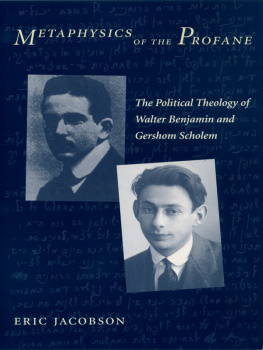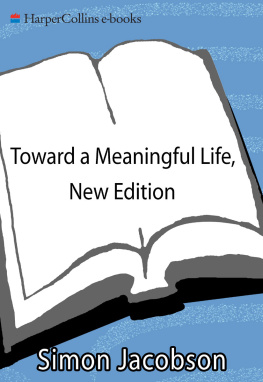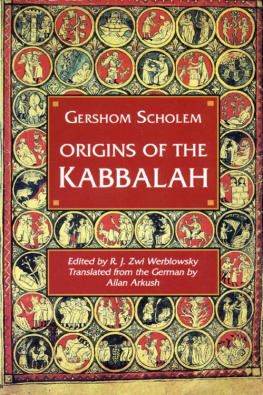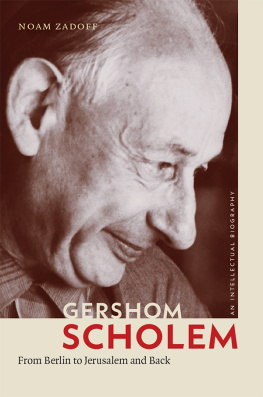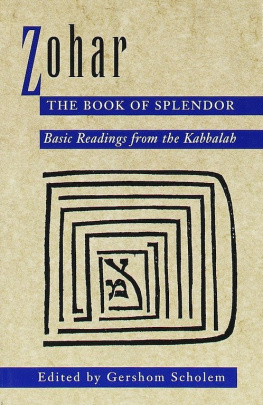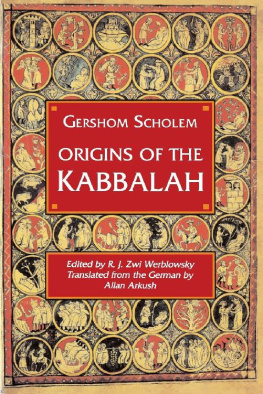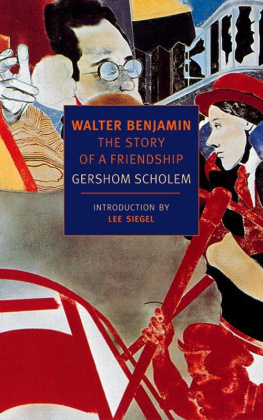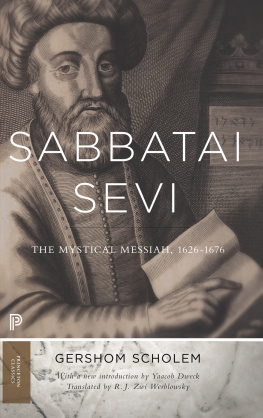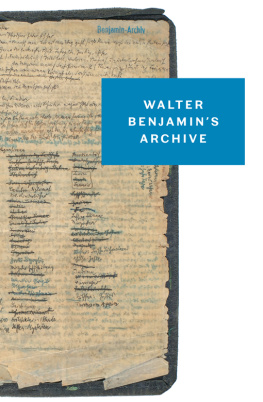METAPHYSICS OF THE PROFANE
ERIC JACOBSON
METAPHYSICS OF THE PROFANE
The Political Theology of Walter Benjamin and Gershom Scholem
COLUMBIA UNIVERSITY PRESS NEW YORK

Columbia University Press
Publishers Since 1893
New York Chichester, West Sussex
cup.columbia.edu
Copyright 2003 Columbia University Press
All rights reserved
E-ISBN 978-0-231-50153-8
Library of Congress Cataloging-in-Publication Data
Jacobson, Eric.
Metaphysics of the profane : the political theology of Walter Benjamin and Gershom Scholem / Eric Jacobson.
p. cm.
Includes bibliographical references and index.
ISBN 0231126565 (cloth : alk. paper)ISBN 0231126573 (pbk. : alk. paper)
1. Benjamin, Walter, 18921940Contributions in political theology. 2. Scholem, Gershom Gerhard, 1897Contributions in political theology. 3. Political theology. 4. MessiahJudaism. 5. Judaism and politics. 6. LanguagePhilosophy. 7. Justice (Jewish theology) I. Title.
B3209.B584 J33 2003
261.7092dc
2002031455
A Columbia University Press E-book.
CUP would be pleased to hear about your reading experience with this e-book at .
FR MISAKO
CONTENTS
Many new materials are presented here for the first time in English, including previously untranslated selections from Gershom Scholems journals and letters, the early writings of Walter Benjamin, and unpublished material from the Scholem Archive in Jerusalem. A short note on the use of the German in this work is therefore due. Each citation is given in translation, followed by the original that Columbia University Press has kindly allowed me to include in the notes to the chapter. In the case of Benjamin, several works from the early period are now available in English, and I have sought to refer to these translations whenever possible. Nevertheless, I have chosen to modify them to better serve this study. On occasion, reference is given but the translations will strongly diverge.
I would like to thank Suhrkamp Verlag for kind permission to reproduce Walter Benjamins Theologisch-Politisches Fragment, from Gesammelte Schriften II:203204, Notizen zu einer Arbeit ber die Kategorie der Gerechtigkeit, and Gershom Scholems Der Bolschewismus, from Gershom Scholem, Tagebcher I:401402 and II:556558, and Thesen ber den Begriff der Gerechtigkeit (Scholem arc. 1599/277.34) from the Gerschom Scholem Archive in Jerusalem. Many thanks to Rafi Weiser, Department of Manuscripts, the National and University Library in Jerusalem, for permission to reproduce Scholems Hebrew rendition of Benjamins On Language As Such and the Language of Man. Chapter 1 has appeared in a modified form under the title Understanding Walter Benjamins Theological-Political Fragment in Jewish Studies Quarterly 8, no. 3 (2001): 205247. An abbreviated version of Chapter 2 appeared in Italian as Anarchismo e traditione ebraica: Gershom Scholem in Amedeo Bertolo, ed., Lanarchico e lebreo, pp. 5575 (Milan: Eluthera, 2001).
In preparing this work, there are several individuals to whom I am most grateful. I would like to thank Dietrich Bhler, Peter Carrier, Werner Konitzer, Michael Lwy, Christopher Powers, Andrea Garetto, Martin Schmidt, Kelly Ann Stoner, and Jrgen Thaler for their comments on the first stages of this project as well as Anson Rabinbach and Gary Smith for their criticism. Thanks to the Visiting Research Fellows program at the Hebrew University and staff at the National and University Library in Jerusalem, in particular the Gershom Scholem Archive and Library, I was able to consult the Scholem Archives in 1998. Giulio Busi, Johanna Hoornweg, and Claudia Ulbrich are gratefully acknowledged for their efforts in the work being awarded a Tibertius prize by the Senate of Berlins Department of Culture in 2000. In preparation of the manuscript for publication, I am very grateful to Wendy Lochner and Susan Pensak at Columbia University Press for their tireless efforts as well as Frank Bhling, Harry Fox, Sander Gilman, Julie Kelley, Josephine Rodigues, Samira Teuteberg, and Myrna Weissman for their help and good advice. Most of all, I am grateful to Joseph Dan for his guidance through every phase of this work. Despite this support, any remaining errors are my own.
What began with a visit to Berlin, one rainy summer a few years after the fall of the wall, burgeoned into the following study of the intellectual partnership of Walter Benjamin and Gershom Scholem, which I wrote over a period of nine years at the Free University of Berlin. Metaphysics of the Profane: The Political Theology of Walter Benjamin and Gershom Scholem concerns an early phase in the thinking of both authors, bound in many ways to the period surrounding the First World War. Their friendship could have begun as early as the fall of 1913, when Scholems Zionist youth group, Jung Juda, met the Sprechsaal der Jugend, which was formed under the influence of the anarchist pedagogue Gustav Wyneken. Following this initial meeting, their friendship was to span twenty-five years, until Benjamins suicide in 1940 while fleeing the Nazis.
The most intensive phase of this intellectual partnership began in 1915 and probably reached a peak during the highly creative but also isolated period of the authors residence in the town of Muri, Switzerland in 1918. It most definitely culminates in 1923 with Scholems departure for Palestine. Other than two brief encounters in Paris in the 1930s, the authors were never to meet again. Following Scholems departure, the discussion takes the form of lettersthose best preserved date from the years 1933 to 1940that Scholem published with great satisfaction toward the end of his life. Other early manuscripts in Scholems hand have yet to see the light of day. The nature of these highly theoretical discussions has also contributed to the fact that this formative period remains for the most part unexplored. Benjamins and Scholems ideas, which I have here characterized as an early political theology, are the focus of this study.
Politics were clearly a main issue of debate. The beginning of their relationship, in marked contrast to its development, was constituted by a shared interest in politics, with the activities of the young Scholem a central topic. This was perhaps the period in Scholems life when he was most politically engaged, attending clandestine meetings with his brother Werner (later USPD-Faction representative with Luxemburg and Liebknecht to the Reichstag) Scholem developed a penchant for revolutionary and utopian political theory that was to have a considerable influence on Benjamin, carving the contours of an intellectual exchange that spanned their entire friendship.
Scholems magnum opus, Major Trends in Jewish Mysticism, begins with a dedication to Walter Benjamin as the genial metaphysician, critic, and scholar. Yet more than simply a eulogy for a friend, these three dimensions of Benjamin were to have an influence on Scholem extending far beyond the friendship of a lifetime, as he puts it in the English version. Indeed friendship is, to the best of our knowledge, that which one experiences in a lifetime, yet the tenor, focus, and, to a great degree, content of the early period of intellectual exchange and mutual influence was to penetrate far into the recesses of Scholems late work, many years after Benjamins death. The nature of these early influences can be said to have shaped the very basis and structure of his conception of Judaism. More than a friendship, the relationship between the authors can rightly be termed an intellectual partnership, one that was essential for Scholems work as a whole. But what does this say about the legacy of the genial metaphysician, critic, and scholar? What is thus an appropriate measure to evaluate the lasting significance of Benjamin thought? If we consider the reception of Benjamins work, where Theodor Adorno has long been considered the most important successor, it was actually Scholem who was the first to extend Benjamins philosophical tradition to his own thought, indeed remaining closer in many ways to the early categorical analysis. In this respect the Marxist reception of Benjamins work in the 1970s was incorrect where it sought to paint Scholem as a conservative. It failed to see Scholems critique of Bolshevism, as well as his friends turn to Marxism in the later years, as a product of his early metaphysical anarchism, which the authors indeed developed together. In this sense the need for a reappraisal of Scholems work is overdue. I have therefore sought to make Benjamins influence on Scholems work one of the key aspects of this book, beginning with the early period and extending into Scholems late studies on Kabbalah. It would also have been a task of great worth to extend the early political theology to Benjamins more mature writings, particularly with regard to a messianic understanding of history. Yet this question, in its own magnitude and complexity, and necessarily predicated on a firm conception of the early period, will have to be reserved for a future project.
Next page
